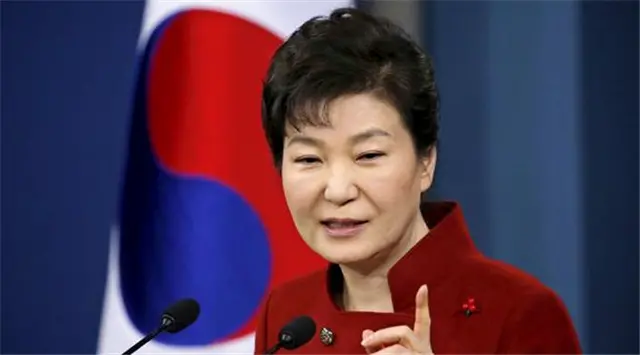(NIKKEI)South Korean President Park Geun-hye on Wednesday called for the "strongest" sanctions against North Korea for its latest nuclear test and urged China to take necessary "actions" to punish the regime in Pyongyang.
In her New Year's press conference, Park also stood firm in defending the agreement on the issue of "comfort women" her government recently reached with Japan.
In a statement she issued before the press conference, Park said the Korean Peninsula is in a "state of emergency," describing it as a highly volatile situation that could explode into a full-blown security crisis.
The president said South Korea will continue its loudspeaker propaganda campaign against Pyongyang, calling it "the surest and most effective psychological warfare tool." Since Jan. 8, South Korea has been blasting anti-Pyongyang propaganda from huge speakers placed along its border with the North.
Unlike in last year's statement, she did not mention "dialogue" or "unification" with North Korea this time.
Since Pyongyang's fourth nuclear test, Park has come under fire for failing to persuade China to take strong actions to rein in North Korea despite her claim that Seoul's ties with Beijing have become very close.North Korea said Jan. 6 that it had successfully detonated a hydrogen bomb, triggering a flurry of diplomatic responses from the international community.
In her speech, Park said, "The best partner holds your hand in a difficult time," and called on China to support tougher sanctions against Pyongyang. She stressed the crucial importance of Chinese intervention, saying the "fifth and sixth nuclear tests by the North in the future cannot be stopped unless China's strong will not to tolerate North Korea's nuclear arms is translated into actual, necessary actions."
Wary on weapons
As for the proposed deployment at U.S. military bases in South Korea of a mobile missile defense system called the Terminal High Altitude Area Defense system, or THAAD, Park said, the idea "will be considered based on our security and national interests." Heradministration has been cautious about the proposal because of strong opposition from China.
Beijing reacted quickly to Park's remarks on the issue, with Chinese Foreign Ministry spokesman Hong Lei sayingat a Wednesday press conference, "When one country considers its security, it must also think about other countries' security." Apparently referring to the proposed missile defense system, he said, "The current situation on the Korean Peninsula is very sensitive, and we call for a cautious and appropriate handling [of the situation]."
Park did not mince words whencommenting on calls within South Korea that the country should arm itself with nuclear weapons in response to the North's nuclear tests. "There must be no nuclear arms on the Korean Peninsula," she said.
As for the agreement with Japan on the issue of wartime "comfort women," the president said that although she was "not 100% satisfied" with the deal, it was the best she could do under the circumstances.
She rebuked the opposition parties for denouncing the agreement, saying it was "extremely regrettable" that the same groups that did not make an effort to solve the problem when they were in power were now calling for the accord to be invalidated.
But is was the faltering economy, not diplomacy, that received the most attention during her 100-minute press conference.
The president pointed out how experts are warning that unless South Korea embarks on reforms now, it risks reliving the hardships it endured during the 1997 Asian financial crisis, which involved a painful bailout from the International Monetary Fund.
She urged parliament to pass bills crafted by her administration to re-energize the economy and reform the labor market.
 简体中文
简体中文

